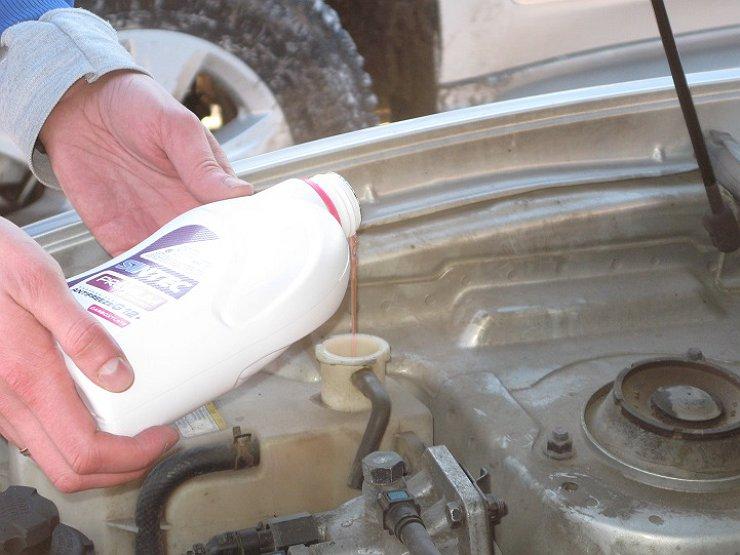
What antifreeze will not boil and freeze
Content
Another test of automotive coolants, which we organized at the end of this winter, once again showed that the situation with this category of products in our market is rather unsightly. The probability of acquiring low-quality antifreeze is painfully high ...
The problem of the presence on the market of a large amount of low-quality antifreeze was identified a few years ago, when my colleagues from other automotive publications and I conducted a comprehensive test of antifreezes. Its results indicated that a significant proportion of the samples tested at that time did not meet the declared characteristics. The severity of the problem is further aggravated by the fact that automotive coolants are a running consumable that is in stable demand. And is it any wonder that today a mass of coolants, diverse in terms of their operational parameters, represented by both domestic and foreign brands, flows into this sought-after market segment. There are a lot of them, but not all of them are suitable for use.
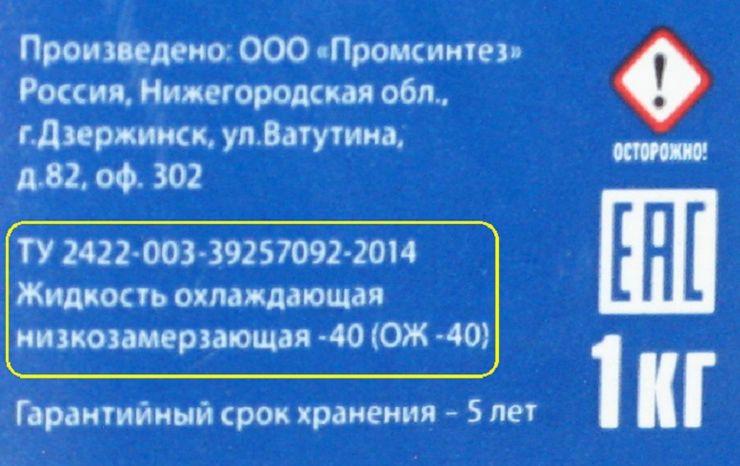
This situation is further aggravated by the fact that Russia has not yet adopted a technical regulation that should classify coolants and establish parameters, as well as the composition and applicability of the components used in their production. The only regulatory document regarding antifreezes (that is, low-freezing coolants) remains the old GOST 28084–89, which was adopted back in the days of the Soviet Union. By the way, the provisions of this document apply only to liquids made on the basis of ethylene glycol (MEG).
This circumstance actually frees the hands of unscrupulous manufacturers who, in pursuit of profit, often use low-quality, and often simply dangerous substances. The scheme here is as follows: businessmen develop their own coolant recipe from cheap components and draw it up in the form of some technical specifications (TU), after which they begin to mass-body their product.
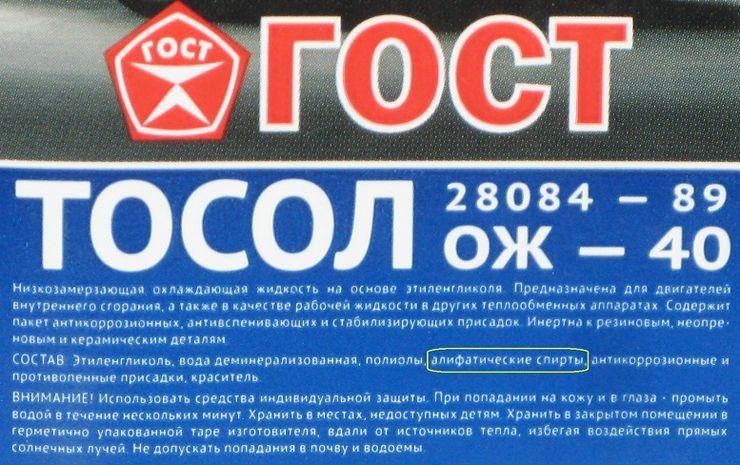
One of the most common options for an “antifreeze” bodyagi is the use of a substitute mixture consisting of cheap glycerin and equally cheap methanol instead of expensive MEG. Both of these components are extremely harmful to the cooling system. So, for example, glycerin contributes to the growth of corrosion activity, especially in the cooling channels of the cylinder block, it has a high viscosity (which is tens of times greater than that of ethylene glycol) and increased density, which leads to accelerated pump wear. By the way, just in order to somehow reduce the viscosity and density of the coolant, the firms add another harmful component to it - methanol.
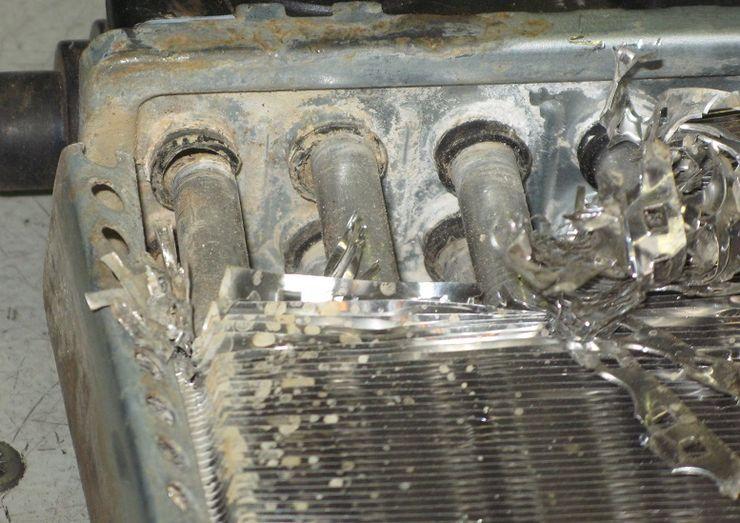
This alcohol, we recall, belongs to the category of dangerous technical poisons. Its use in the production of mass consumption products is prohibited by law, the violation of which threatens with severe administrative penalties. However, this is only one, the legal aspect. The use of methyl alcohol in the cooling system is also technically unacceptable, since methanol simply disables its parts and assemblies. The fact is that an aqueous solution of methyl alcohol at temperatures of 50 ° C and above begins to actively interact with aluminum and aluminum alloys, destroying them. The rate of such interaction is very high and is incomparable with the usual rate of corrosion of metals. Chemists call this process etching, and this term speaks for itself.
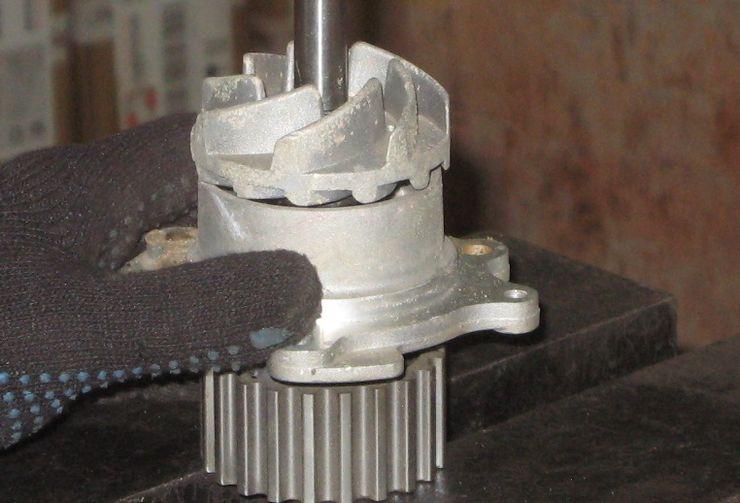
But this is only part of the problems that "methanol" antifreeze creates. Such a product has a low boiling point (about 64°C), so the methanol is gradually volatilized from the cooling circuit. As a result, coolant remains there, the temperature parameters of which do not at all correspond to the required thermal parameters of the engine. In summer, in hot weather, such a liquid boils quickly, creating plugs in the circulation circuit, which inevitably leads to overheating of the motor. In winter, in the cold, it can simply turn into ice and disable the pump. According to experts, individual elements of the cooling system units, for example, the impellers of water pumps, which are also subjected to high dynamic loads, are destroyed by methanol-glycerin antifreeze in almost one season.
That is why the current test, which was organized jointly with the information and analytical portal "Avtoparad", its main goal was to identify substandard products containing methyl alcohol. For testing, we selectively purchased twelve samples of various antifreezes and antifreezes, which were purchased at gas stations, the capital and Moscow region car markets, as well as chain car dealerships. All bottles with coolants were then transferred to one of the testing laboratories of the 25th State Research Institute of the Ministry of Defense of the Russian Federation, whose specialists conducted all the necessary studies.
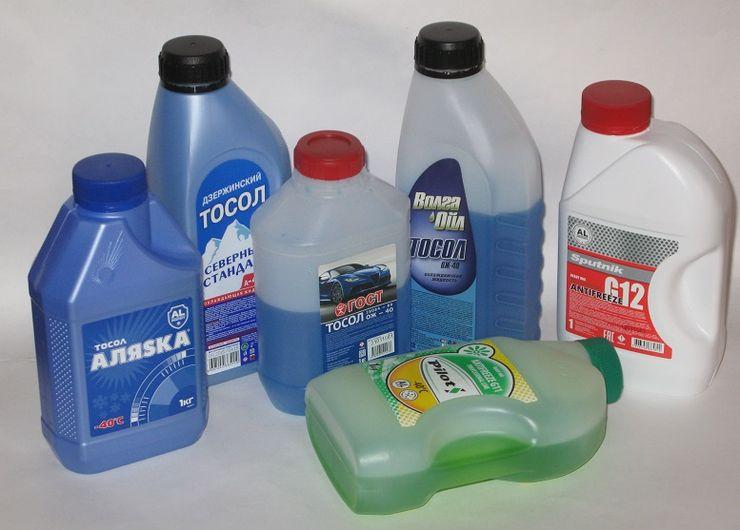
Antifreezes you shouldn't buy
To put it bluntly, the final results of product tests conducted at research institutes do not inspire optimism. Judge for yourself: out of 12 liquids purchased by us for testing, methanol was detected in six (and this is half of the samples), and in a fairly large amount (up to 18%). This fact once again demonstrates the acuteness of the problem associated with the risk of acquiring dangerous and low-quality antifreezes in our market. Among the test participants, these include: Alaska Tosol -40 (Tektron), Antifreeze OZH-40 (Volga-Oil), Pilots Antifreeze Green Line -40 (Streksten), Antifreeze -40 Sputnik G12 and Antifreeze OZH-40 (both produced by Promsintez), as well as Antifreeze A-40M Northern Standard (NPO Organic-Progress).
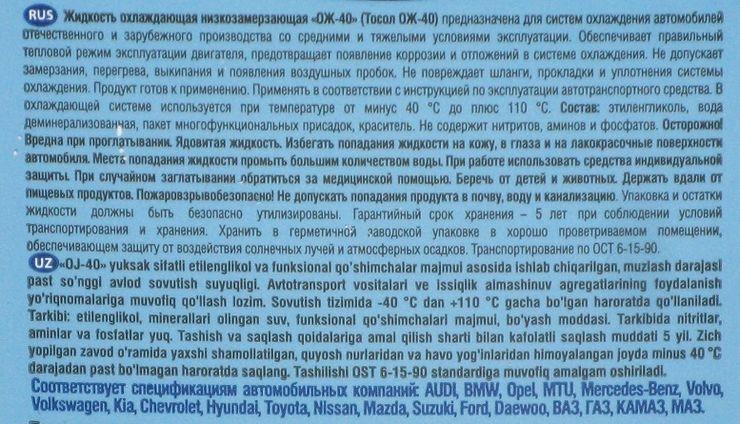
Returning specifically to the test results, we note that the temperature indicators of "methanol" coolants do not stand up to criticism. So, their boiling point, which, according to clause 4.5 of TU 6-57-95-96, should not fall below +108 degrees, in reality is 90-97 degrees, which is much lower than the boiling point of ordinary water. In other words, the likelihood that a motor with any of these six antifreezes can boil (especially in summer) is very high. The situation is no better with the temperature of the onset of crystallization. Almost all samples containing methanol do not withstand the 40-degree frost provided for by the industry standard, and the Antifreeze -40 Sputnik G12 sample froze already at -30°C. At the same time, some coolant manufacturers, without any twinge of conscience, indicate on the labels that their products allegedly meet the specifications of Audi, BMW, Volkswagen, Opel, Toyota, Volvo ...
Antifreezes that meet the requirements of car manufacturers
Now let's talk about high-quality coolants, whose parameters are fully within the standards. Excellent results in the test were demonstrated by all major antifreeze manufacturers, both Russian and foreign. These are such popular domestic brands as CoolStream (Technoform, Klimovsk), Sintec (Obninskorgsintez, Obninsk), Felix (Tosol-Sintez-Invest, Dzerzhinsk), Niagara (Niagara, Nizhny Novgorod). From foreign products, the brands Liqui Moly (Germany) and Bardahl (Belgium) participated in the test. They also have great results. All of the listed antifreezes are made on the basis of MEG, which largely determines the quality of their performance. In particular, almost all of them have a large margin both in terms of frost resistance and boiling point.
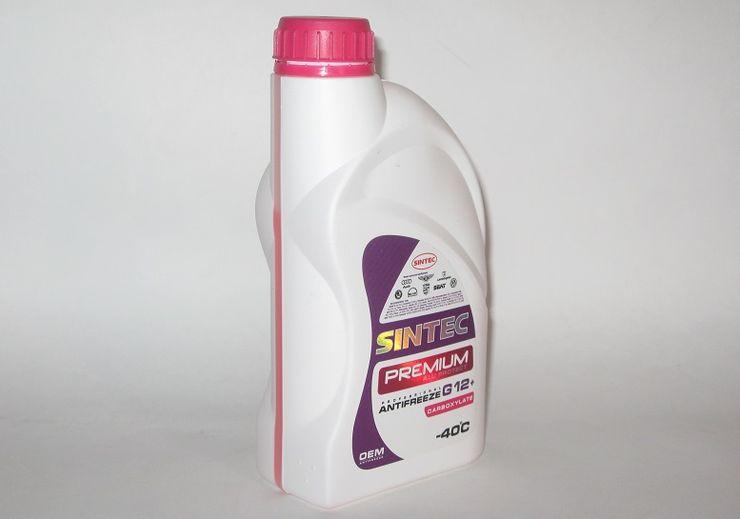
Sintec Premium G12 + antifreeze
According to the results of the current test, Sintec Premium G12 + antifreeze has a good frost resistance margin - the crystallization temperature is -42 C instead of the standard -40 C. The product is produced by Obninskorgsintez based on the latest organic synthesis technology from top-grade ethylene glycol and an imported package of functional additives. Thanks to the latter, Sintec Premium G12+ antifreeze actively resists corrosion and does not form deposits on the internal surfaces of the cooling system. In addition, it has effective lubricating properties that prolong the life of the water pump. Antifreeze has approvals from a number of well-known car manufacturers (Volkswagen, MAN, FUZO KAMAZ Trucks Rus) and is recommended for use in passenger cars of domestic and foreign production, trucks and other vehicles with medium and severe operating conditions. Estimated price for 1 liter - 120 rubles.
Liqui Moly long-term radiator antifreeze GTL 12 Plus
Imported coolant Langzeit Kuhlerfrostschutz GTL 12 Plus was developed by the German company Liqui Moly, which has extensive experience in the production of a variety of automotive technical fluids and oils. The product is an original composition of a new generation, produced using monoethylene glycol and a high-tech package of special additives based on organic carboxylic acids. As our studies have shown, this antifreeze has excellent temperature performance, ensuring efficient operation of the cooling system in the range from -45°C to +110°C. As the developers themselves note, antifreeze effectively resists electrochemical corrosion of metals, as well as high-temperature corrosion of aluminum alloys. The coolant has been repeatedly tested by the world's leading automakers, resulting in approvals from Audi, BMW, DaimlerCrysler, Ford, Porsche, Seat, Skoda. We also note that Langzeit Kuhlerfrostschutz GTL 12 Plus is mixed with standard G12 antifreezes (usually painted red), as well as with standard G11 antifreezes. The recommended replacement interval is 5 years. Estimated price for 1 liter - 330 rubles.
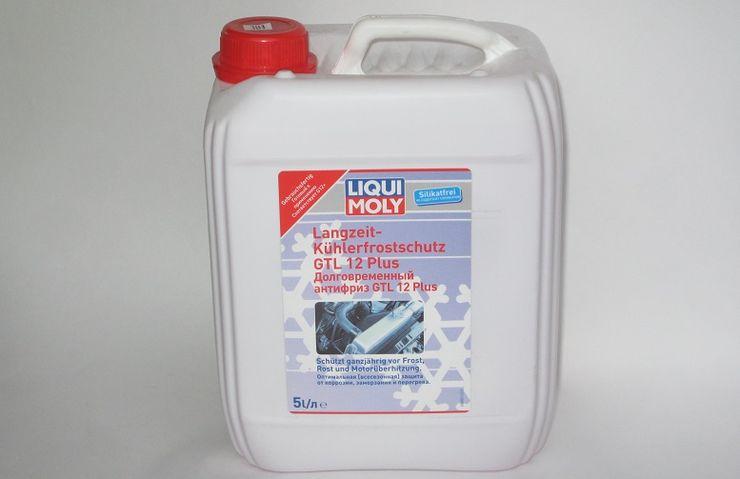
CoolStream default
CoolStream Standard carboxylate antifreeze is produced by Technoform, one of the leading Russian manufacturers of automotive coolants. It is an ethylene glycol-based multi-purpose green coolant with Organic Acid Technology (OAT) carboxylate technology. It is made from Arteco (Belgium) Corrosion Inhibitor BSB and is an exact copy (rebrand) of Antifreeze BS-Coolant. The product is designed for cooling systems of modern gasoline and diesel engines of both foreign and domestic production. It contains additives from Arteco (Belgium), a joint venture between Chevron and Total, which is a guarantee of the quality of all CoolStream carboxylate antifreezes. Suffice it to say that CoolStream Standard meets two stringent international standards: American ASTM D3306 and British BS 6580, and its service life reaches 150 km without replacement. Based on the results of laboratory, bench and sea trials of CoolStream Standard antifreeze, official permits and approvals for use have now been received from AVTOVAZ, UAZ, KamAZ, GAZ, LiAZ, MAZ and a number of other Russian car factories.
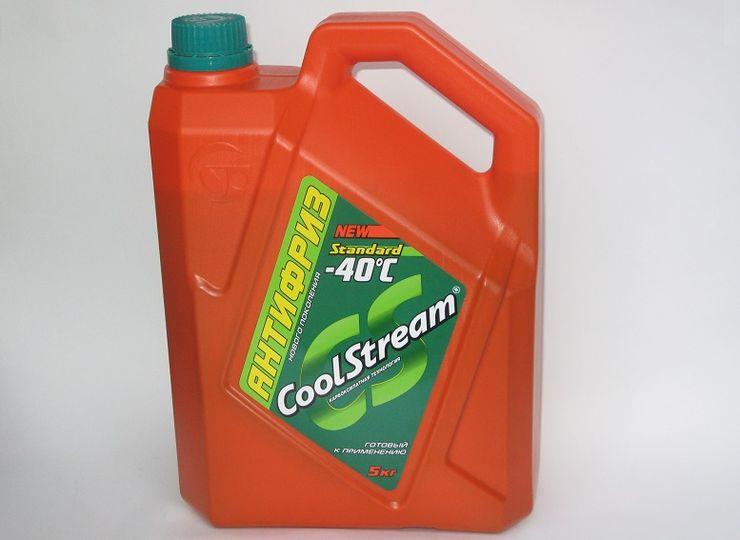
Felix Carbox G12
Felix Carbox coolant is a new generation domestic carboxylate antifreeze. According to the VW classification, it corresponds to class G12 + organic antifreeze. During the test, the product showed one of the best results in terms of frost resistance (withstands low temperatures down to -44 degrees). Note that Felix Carbox has passed a full cycle of tests in the American research center ABIC Testing Laboratories, which confirmed its full compliance with international standards ASTM D 3306, ASTM D 4985, ASTM D 6210, which regulate the requirements for technical characteristics and quality of coolants. Currently, the product has approvals from a number of foreign as well as domestic automakers, including AvtoVAZ and KAMAZ, GAZ, YaMZ and TRM.
Felix Carbox is made from premium grade monoethylene glycol, specially formulated ultra pure demineralized water and a unique carboxylic acid additive package. The use of antifreeze provides increased mileage until its next replacement (up to 250 km), provided that the product is not mixed with other brands of coolants.
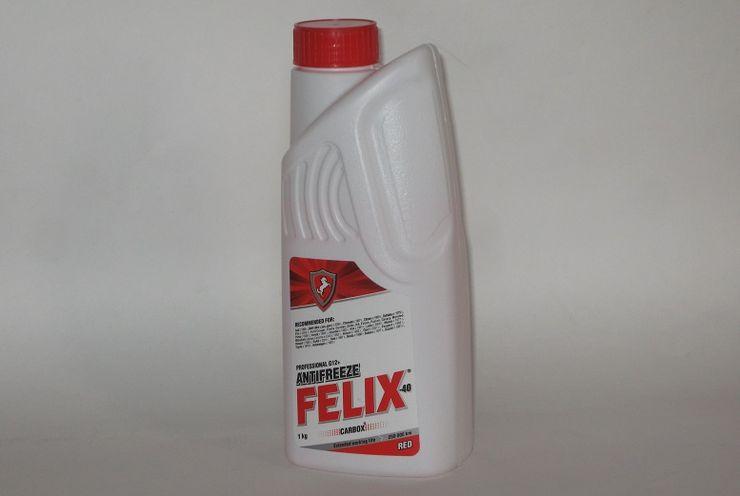
Niagara RED G12+
Niagara RED G12+ antifreeze is a new generation coolant developed by Niagara PKF specialists. The product was created using the unique Extended Life Coolant Technology carboxylate technology, one of the important properties of which is the ability to form a dotted protective layer in places where corrosion begins to form. This quality of antifreeze provides it with an extended replacement interval (up to 5 years of operation after filling the cooling system or 250 km of run). We also note that the Niagara RED G000 + coolant has passed a full cycle of tests for compliance with international standards ASTM D12, ASTM D3306 in the ABIC Testing Laboratories, USA. In addition, the antifreeze has the official approval of AvtoVAZ, as well as other Russian automobile plants, for the first refueling on the conveyor.
During the test, Niagara RED G12+ antifreeze demonstrated the largest (among other test participants) frost resistance margin (up to -46 ° C). With such temperature indicators, this coolant can be used in almost all regions of Russia. A distinctive feature of the Niagara G12 Plus Red canister is a convenient retractable spout that makes it easier to fill liquid into the cooling system. Estimated price for 1 liter - 100 rubles.
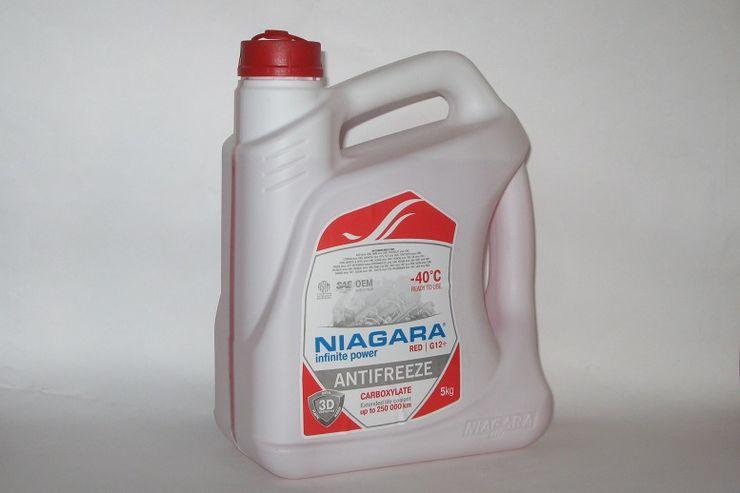
Bardahl Universal Concentrate
An original Belgian antifreeze concentrate produced on the basis of monoethylene glycol with the use of a high-tech package of carboxylate additives. A distinctive feature of this product is its versatility - antifreeze based on it is mixed with any type of organic and mineral coolants, regardless of color, including antifreeze. During the test, the product not only confirmed the declared temperature indicators, but even improved them somewhat. According to representatives of the developer company, antifreeze effectively resists electrochemical corrosion of metals, as well as high-temperature corrosion of aluminum alloys. The coolant is also recommended for engines that require improved heat dissipation - highly accelerated engines, turbocharged engines. It is important to note that Bardahl Universal Concentrate is neutral to various metals and alloys, be it brass, copper, alloy steel, cast iron or aluminium. Antifreeze does not adversely affect the rubber and plastic products of the cooling system. From operation in the cooling systems of passenger cars can reach 250 km, and the guaranteed service life is at least 000 years. In a word, a worthy product. Estimated price for 5 liter of concentrate - 1 rubles.
So, what conclusions can be drawn from the results of the tests? First of all, it should be remembered that in the market, in addition to good products of well-known brands, there are dozens of coolant items of other brands, and far from the best quality. So if you're not tech savvy, follow a few simple rules. First, use antifreeze approved by your car manufacturer. If you cannot find such a coolant - choose the same type of antifreeze as recommended for your car, but must be approved by other car companies. And never take the word of auto salespeople touting their "superantifreezes." By the way, it is not so difficult to check the accuracy of the declared data. To clarify information about the availability of tolerances, sometimes it is enough to look at the service book, automotive documentation, websites of car factories and antifreeze manufacturers. When buying, pay attention to the packaging - on some bottles, manufacturers glue the label "Does not contain glycerin" - to eliminate doubts about the quality of their product.
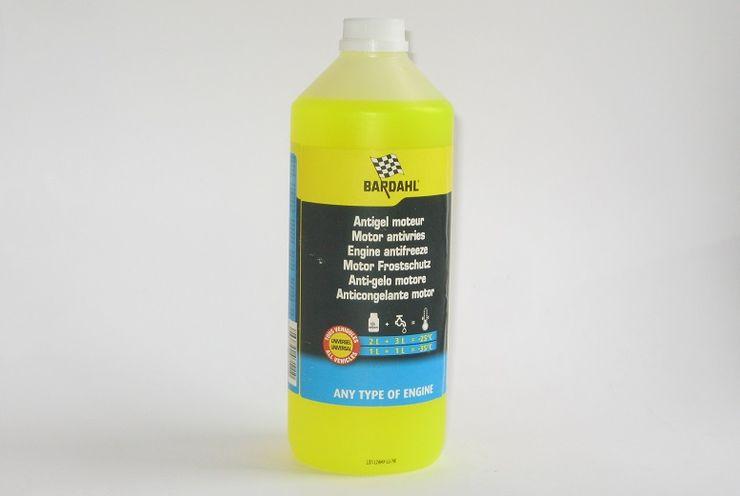
By the way, for all the problems noted above in the engine cooling system caused by the use of glycerin-methanol antifreezes, today it is possible and necessary to make claims against their manufacturers. There are legal grounds for this, including those adopted at the intergovernmental level. Recall that at the end of last year, the Board of the Eurasian Economic Commission (EEC), by its Decision No. 162, amended the Unified Sanitary and Epidemiological Requirements and the Technical Regulations of the Customs Union “On Requirements for Lubricants, Oils and Special Fluids” (TR CU 030/2012) . According to this decision, a strict restriction on the content of methyl alcohol in coolants will be introduced - it should not exceed 0,05%. The decision has already entered into force, and now any car owner can apply, in the manner prescribed by law, to state control (supervision) bodies and demand compensation for damage to property resulting from the use of products that do not comply with the technical regulations. The document of the Eurasian Economic Commission is valid on the territory of five countries that are members of the EEC: Russia, Belarus, Kazakhstan, Armenia and Kyrgyzstan.